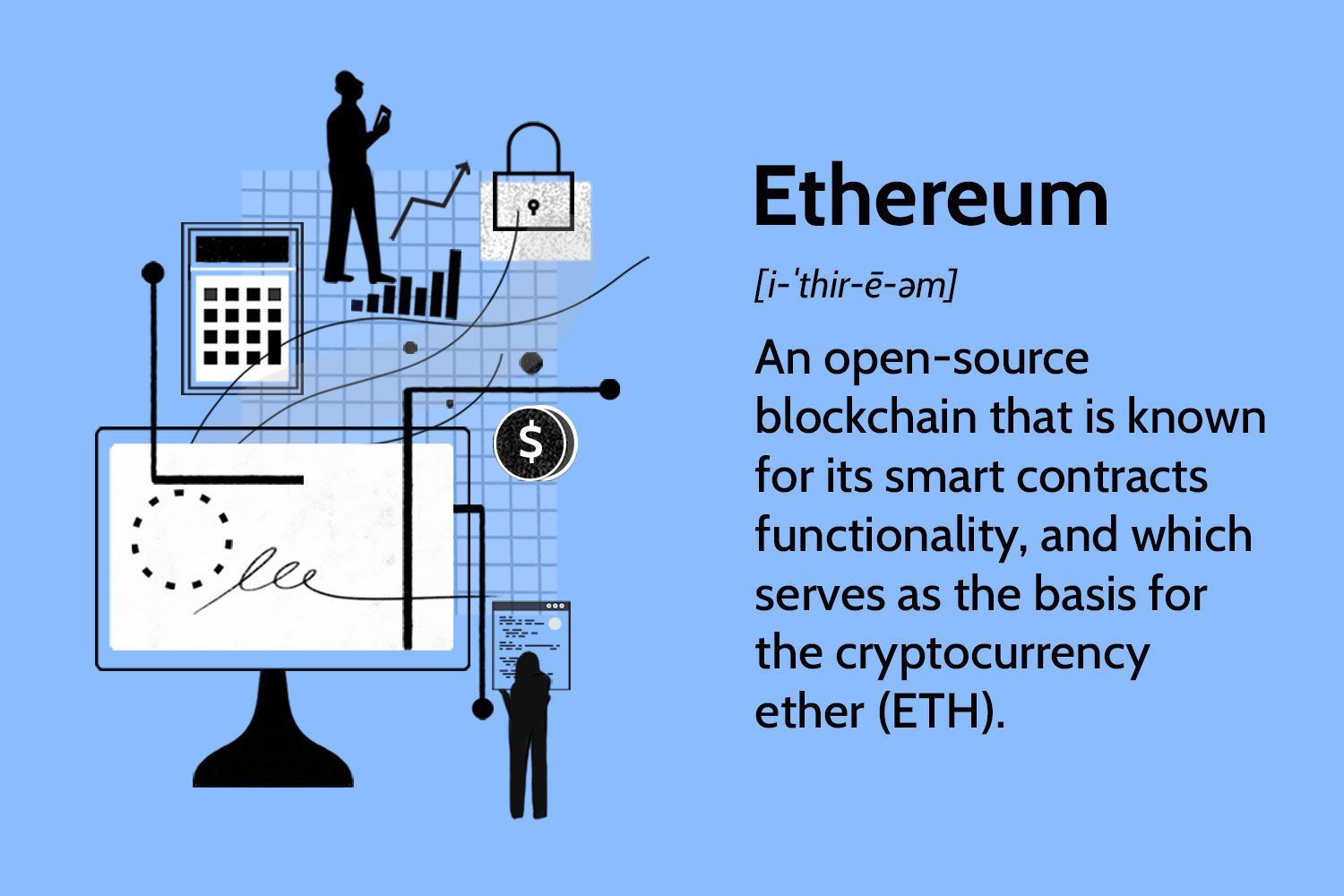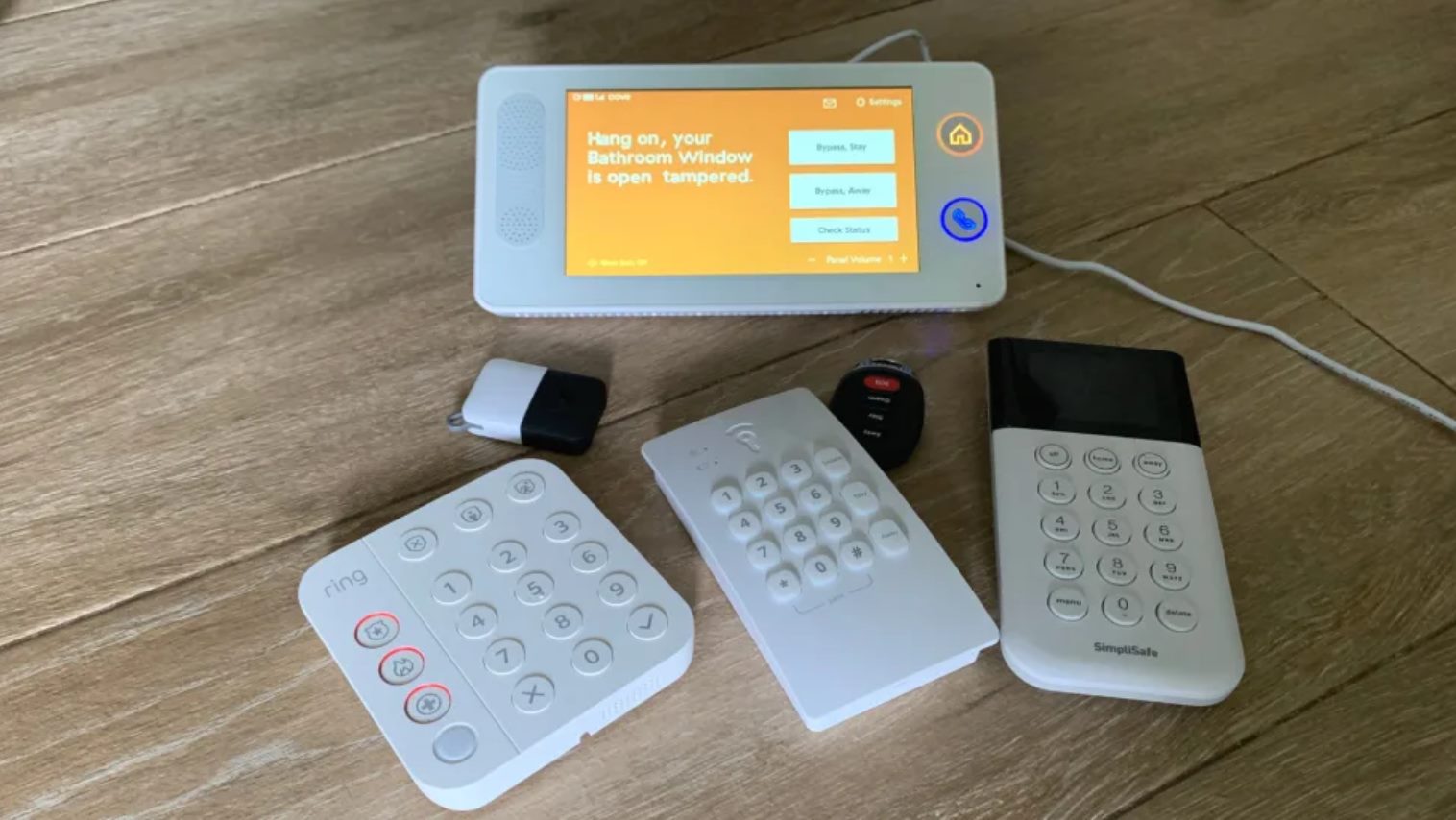What are Smart Contracts?
Smart contracts are self-executing contracts with the terms of the agreement directly written into lines of code. They are built on blockchain technology, which ensures transparency, immutability, and security. Smart contracts eliminate the need for intermediaries, such as lawyers or banks, as they automatically process and enforce the terms of the contract.
Unlike traditional contracts, smart contracts are executed and enforced automatically when predefined conditions are met. These conditions can range from specific dates to the completion of certain actions. Once the conditions are met, the smart contract executes itself, triggering the transfer of assets or the completion of a transaction.
Smart contracts operate on decentralized blockchain networks, which means they are not controlled by a central authority. The decentralized nature of smart contracts provides several advantages, including increased transparency, reduced costs, and improved efficiency.
For example, imagine a real estate transaction. In a traditional contract, an intermediary, such as a lawyer or a notary, would oversee the process of transferring property ownership from the seller to the buyer. This process can be time-consuming and costly. However, with a smart contract, the terms of the real estate transaction can be coded into the blockchain, and the transfer of ownership can be automatically executed and recorded once the conditions are met. This eliminates the need for intermediaries, reducing costs and ensuring a more efficient process.
Smart contracts have gained popularity due to their potential to revolutionize numerous industries, including finance, supply chain management, healthcare, and more. By automating contract execution and removing the need for intermediaries, smart contracts provide a secure, efficient, and cost-effective solution for various business processes.
Overall, smart contracts are digital agreements that can simplify and streamline contract execution. They offer many benefits, including increased efficiency, reduced costs, and improved security. As blockchain technology continues to evolve, smart contracts are set to play a crucial role in transforming how contracts are implemented and managed across various industries.
How do Smart Contracts Work?
Smart contracts leverage the power of blockchain technology to automate and enforce the terms of an agreement. They follow a systematic process that ensures transparency, security, and autonomy.
1. Coding the Contract: The first step in creating a smart contract is coding the terms of the agreement into lines of code. This entails defining the conditions and actions that need to be executed for the contract to be fulfilled.
2. Deployment on a Blockchain: Once the smart contract is coded, it is deployed onto a blockchain network, such as Ethereum. The contract then becomes a part of the blockchain’s distributed ledger, making it accessible to all participants on the network.
3. Triggering the Contract: Smart contracts are triggered by the occurrence of specific conditions. These conditions can be time-based, such as a certain date, or event-based, such as the completion of a task. When the conditions are met, the contract is automatically executed.
4. Validation and Execution: The execution of the smart contract occurs through a process called validation. Once the conditions are met, the nodes on the blockchain network validate the contract to ensure its integrity and security. This process prevents any unauthorized modifications or tampering.
5. Asset Transfer: After validation, the smart contract facilitates the transfer of digital assets or the execution of predefined actions. This can include the transfer of cryptocurrencies, the updating of records, or the triggering of a specific event.
6. Recording on the Blockchain: Every action and transaction executed through the smart contract is recorded on the blockchain’s distributed ledger. This creates an immutable and transparent record of the contract’s execution, providing an auditable trail.
7. Autonomy and Trust: Smart contracts eliminate the need for intermediaries, as their execution is automatic and self-enforcing. This removes the risk of human error, bias, or manipulation, enhancing trust between parties.
By combining blockchain technology with programming logic, smart contracts transform the way contracts are managed and executed. They provide a secure and automated solution that saves time, reduces costs, and increases efficiency in various industries.
Benefits of Smart Contracts
Smart contracts offer numerous benefits that address the limitations of traditional contract systems. These advantages have the potential to revolutionize various industries and business processes. Here are some key benefits of smart contracts:
1. Automation and Efficiency: Smart contracts automate contract execution, eliminating the need for manual intervention. This automation increases the efficiency of operations, reduces processing time, and minimizes the potential for errors or disputes.
2. Cost Savings: With smart contracts, intermediaries such as lawyers or notaries are no longer required, leading to significant cost savings. The removal of middlemen reduces fees and processing charges, making contract execution more affordable.
3. Transparency and Trust: Smart contracts operate on blockchain technology, offering enhanced transparency and immutability. All parties involved can view and verify the terms and conditions of the contract, promoting trust and reducing the risk of fraud or misinterpretation.
4. Security: The decentralized nature of smart contracts ensures a high level of security. The tamper-proof blockchain technology encrypts and stores contract data, making it extremely challenging for malicious actors to alter or manipulate the contract’s content.
5. Speed: Smart contracts eliminate the need for time-consuming manual processes, such as paperwork or physical verification. Contract execution is expedited, enabling faster settlements and reducing processing delays.
6. Accuracy and Consistency: Smart contracts are programmed with predefined conditions, ensuring accuracy and consistency in contract execution. By removing the potential for human error or bias, smart contracts provide a reliable and standardized approach.
7. Auditability: All actions and transactions related to smart contracts are recorded on the blockchain, creating an immutable and auditable trail. This feature enhances accountability and simplifies auditing processes.
8. Reduced Disputes: Smart contracts have clear and predefined conditions, leaving no room for ambiguity or misinterpretation. This reduces the possibility of contract disputes, as all parties have a shared understanding of the contract terms.
9. Streamlined Business Processes: Smart contracts streamline complex business processes by automating tasks and reducing manual intervention. This leads to increased efficiency and productivity across various industries, from supply chain management to finance.
10. Global Accessibility: Smart contracts are not bound by geographical limitations. They can be accessed and executed by parties from different locations, enabling global collaborations and partnerships.
Overall, smart contracts offer a range of benefits, including automation, cost savings, transparency, security, and efficiency. As blockchain technology continues to evolve, smart contracts are set to transform industries, making contract execution faster, more secure, and more reliable.
Features and Characteristics of Smart Contracts
Smart contracts possess several key features and characteristics that set them apart from traditional contracts. Understanding these features can help grasp the unique capabilities and benefits of smart contracts. Here are some notable features:
1. Self-execution: Smart contracts are designed to automatically execute actions based on predefined conditions. Once the conditions are met, the contract executes itself, reducing the need for manual intervention.
2. Transparency: Smart contracts operate on blockchain technology, which offers transparency. All parties involved can access and view the contract terms, ensuring a shared understanding and reducing the potential for disputes.
3. Immutability: The data and records of smart contracts are stored on a blockchain, making them immutable. Once a contract is executed, the information is permanently recorded and cannot be altered or tampered with.
4. Decentralization: Smart contracts are built on blockchain networks, which are decentralized and distributed across multiple nodes. This decentralized nature eliminates the need for a central authority, reducing the risk of single-point failures or manipulation.
5. Conditional execution: Smart contracts execute actions based on predefined conditions. These conditions can be time-based, event-based, or triggered by external sources, ensuring that actions occur only when specific criteria are met.
6. Cost-effectiveness: Smart contracts eliminate the need for intermediaries such as lawyers or notaries, resulting in cost savings for contract execution. By removing third-party involvement, smart contracts reduce processing fees and overhead costs.
7. Accuracy and reliability: Smart contracts are programmed with precise logic, ensuring accuracy and consistency in contract execution. The predetermined conditions and actions reduce the risk of errors or discrepancies that can occur in manual processes.
8. Traceability: Each transaction and action executed through a smart contract is recorded on the blockchain’s distributed ledger. This traceability feature provides an audit trail, making it easy to track and verify the history of the contract.
9. Cross-border capabilities: Smart contracts are not restricted by geographical boundaries. They can be executed by parties from different locations, making them suitable for global collaborations and business transactions.
10. Enhanced security: Blockchain technology ensures the security of smart contracts. The decentralized nature of blockchain, coupled with cryptographic techniques, protects the contract’s integrity, making it highly resistant to tampering or unauthorized modifications.
These features and characteristics make smart contracts a powerful and revolutionary concept. By leveraging blockchain technology, smart contracts offer transparency, security, efficiency, and cost-effectiveness – ultimately transforming the way contracts are executed and managed in various industries.
Examples of Smart Contracts
Smart contracts have gained popularity across various industries due to their potential to automate and streamline contract execution. Here are a few examples showcasing how smart contracts are being utilized:
1. Supply Chain Management: Smart contracts are used to track and validate the movement of goods in the supply chain. By automating tasks such as inventory management, payment processing, and quality assurance, smart contracts enhance transparency and efficiency in supply chain operations.
2. Insurance Claims: Smart contracts can automate insurance claims processing. For example, in the case of flight delay insurance, a smart contract can monitor flight data and trigger a payout automatically when the conditions, such as a certain length of delay, are met. This eliminates the need for manual claims processing and speeds up compensation for policyholders.
3. Real Estate Transactions: Smart contracts are revolutionizing real estate by simplifying property transactions. They can facilitate the automated transfer of property ownership once predefined conditions, such as payment and documentation verification, are met. This reduces paperwork, streamlines the process, and minimizes the risk of fraud.
4. Financial Services: In the financial industry, smart contracts are being utilized for various purposes, including lending, asset tokenization, and decentralized finance (DeFi) platforms. Smart contracts enable the automation of loan disbursals, interest payments, and collateral management, streamlining financial processes and reducing the need for intermediaries.
5. Healthcare: Smart contracts are used in healthcare for managing patient data, consent forms, and health records. These contracts can ensure the privacy and security of patient information while granting access to specified healthcare providers. Smart contracts also aid in automating insurance claims and streamlining the payment process.
6. Voting Systems: Smart contracts can enhance the transparency and security of voting systems. By recording each vote on a blockchain, smart contracts can eliminate the possibility of tampering or fraud while enabling secure and auditable elections.
7. Rental Agreements: Smart contracts are transforming the rental industry by automating aspects such as rent payments and lease agreements. These contracts can automatically execute rental payments and enforce penalty clauses if terms are violated, reducing disputes and administrative burdens for both landlords and tenants.
These are just a few examples of how smart contracts are being applied across different industries to streamline processes, reduce costs, enhance security, and increase efficiency. As blockchain technology continues to evolve, the potential applications for smart contracts are limitless, making them a key component of the digital transformation era.
Smart Contracts vs Traditional Contracts
Smart contracts and traditional contracts differ in several key aspects, ranging from their execution method to the level of efficiency and security they provide. Here’s a comparison between smart contracts and traditional contracts:
1. Execution and Automation: Smart contracts are self-executing and automated, triggered by predefined conditions. Traditional contracts require manual intervention and rely on human interpretation to execute and enforce the terms.
2. Intermediaries: Traditional contracts often involve intermediaries, such as lawyers or notaries, to oversee the contract process. Smart contracts eliminate the need for intermediaries as their execution is automatically enforced, reducing costs and increasing efficiency.
3. Transparency: Smart contracts operate on blockchain technology, which ensures transparency as all parties have access to the contract terms and can verify their execution. Traditional contracts may lack this level of transparency, as specific clauses or details may remain confidential.
4. Speed and Efficiency: Smart contracts enable faster contract execution, as they eliminate time-consuming manual processes involved in traditional contracts. The automation and predefined conditions of smart contracts expedite the entire contract lifecycle.
5. Cost Savings: Smart contracts reduce costs by eliminating the need for intermediaries and streamlining contract execution. Traditional contracts often involve overhead costs associated with paperwork, legal fees, and processing delays.
6. Security: Smart contracts utilize blockchain technology, which provides enhanced security and immutability. The decentralized nature of blockchain minimizes the risk of fraud, tampering, or unauthorized modifications. Traditional contracts may be more vulnerable to breaches or disputes.
7. Flexibility and Adaptability: Smart contracts can be programmed to adapt dynamically to changing conditions or events. Traditional contracts may require manual amendments or renegotiations if circumstances change.
8. Enforceability: Smart contracts have built-in enforcement mechanisms, as their execution is automatic and self-enforcing. Traditional contracts may require legal action or intervention to enforce their terms in case of breaches or disputes.
9. Auditability: Smart contracts leave a transparent and immutable audit trail due to their execution on the blockchain. This simplifies auditing and verification processes. Traditional contracts may require manual record-keeping and auditing procedures.
10. Global Accessibility: Smart contracts can be accessed and executed globally without geographical limitations, making them suitable for international collaborations. Traditional contracts may face challenges due to differing legal systems and complex cross-border transactions.
While traditional contracts have been widely used for centuries, smart contracts offer numerous advantages in terms of automation, efficiency, transparency, and security. As blockchain technology continues to advance, smart contracts are increasingly being adopted in various industries, revolutionizing traditional contract practices.
Challenges and Risks of Smart Contracts
While smart contracts offer many benefits, they also come with their own set of challenges and risks. Understanding these challenges is crucial for ensuring the successful adoption and implementation of smart contracts. Here are some key challenges and risks associated with smart contracts:
1. Smart Contract Bugs: Errors or vulnerabilities in smart contract code can lead to unintended consequences or exploitation by malicious actors. Even a small bug in the code can have significant implications and result in financial losses.
2. Complexity: Smart contracts involve complex coding and logic. Developing and auditing smart contract code requires specialized technical skills, which may limit the wider adoption of smart contracts across industries.
3. Legal Ambiguity: Smart contracts exist in a legal grey area in many jurisdictions. Legal frameworks may not yet fully recognize or address the unique characteristics of smart contracts, potentially leading to challenges in enforcing them.
4. Irreversibility: Once a smart contract is executed on the blockchain, it is typically irreversible. In the case of errors or disputes, reversing or modifying the contract can be challenging, requiring consensus among all involved parties.
5. Oracles and External Data: Smart contracts often rely on external data sources, known as oracles, for real-world information. The accuracy and reliability of these data sources can pose risks if they provide inaccurate or manipulated data.
6. Regulatory Compliance: Compliance with existing regulations can be a challenge for smart contracts, especially in highly regulated industries. Ensuring that smart contracts align with legal and regulatory requirements is crucial to avoid legal issues and penalties.
7. Privacy Concerns: As smart contracts operate on public blockchains, the transparency of the blockchain may raise privacy concerns. Confidential or sensitive information included in a smart contract may be visible to all participants on the network.
8. Scalability: As smart contract adoption grows, scalability becomes an issue. Public blockchain networks may face limitations in terms of transaction processing speeds and network congestion, potentially impacting the efficiency of smart contracts.
9. Governance and Consensus: In decentralized blockchain networks, decision-making and consensus mechanisms can present challenges. Resolving disputes, making updates, or implementing changes to smart contracts may require consensus among network participants.
10. Dependency on External Factors: Smart contracts can be influenced by external factors, such as regulations, technological advancements, or changes in the underlying blockchain protocol. These factors can introduce uncertainties and impact the performance and effectiveness of smart contracts.
It is important to address these challenges and risks through thorough code reviews, extensive testing, legal expertise, and continuous monitoring of smart contract performance. As the technology matures and regulatory frameworks develop, many of these challenges and risks are expected to be mitigated, making smart contracts more robust and widely adopted.
Industries that Can Benefit from Smart Contracts
Smart contracts have the potential to revolutionize various industries by automating and streamlining contract execution processes. The advantages they offer, such as transparency, efficiency, and cost savings, make them suitable for a wide range of applications. Here are some industries that can benefit from smart contracts:
1. Finance: The financial industry can leverage smart contracts for various purposes, including loans, payments, insurance, and asset management. Smart contracts automate lending processes, enable instant payments, and streamline insurance claims, reducing costs and increasing efficiency.
2. Supply Chain Management: Smart contracts can enhance supply chain operations by automating processes such as tracking, verifying, and validating the movement of goods. This enables real-time visibility, reduces paperwork, and minimizes manual errors in supply chain management.
3. Real Estate: Smart contracts can simplify real estate transactions by automating property transfers, escrow services, and lease agreements. This streamlines the buying, selling, and renting of properties while reducing the need for intermediaries and paperwork.
4. Healthcare: Smart contracts in healthcare can automate processes such as patient data management, consent forms, and insurance claims. By securely storing and sharing patient records, smart contracts improve the accuracy, privacy, and efficiency of healthcare operations.
5. Government: Governments can leverage smart contracts to enhance transparency and efficiency in areas such as procurement, voting systems, and land registry. Smart contracts can automate public service processes, reduce bureaucracy, and ensure the integrity of government operations.
6. Insurance: The insurance industry can benefit from smart contracts by automating claims processing, policy issuance, and risk assessment. Smart contracts enable faster payouts based on predefined triggers, reducing administrative costs and improving customer experiences.
7. Legal: Smart contracts have the potential to transform the legal industry by automating contract execution and enforcement. They can streamline legal processes such as wills, copyrights, and intellectual property management, ensuring accuracy, security, and transparency.
8. Energy: Smart contracts can optimize energy consumption and facilitate peer-to-peer energy trading. By automating energy transactions and ensuring transparent billing, smart contracts enable more efficient and sustainable energy management.
9. Logistics: Smart contracts can streamline logistics operations by automating tasks such as tracking shipments, managing inventories, and optimizing routes. This enhances transparency, reduces costs, and improves overall supply chain efficiency.
10. Automotive: Smart contracts can be utilized in the automotive industry for automated maintenance scheduling, vehicle history tracking, and secure ownership transfers. This ensures transparency, reduces fraud, and enhances the overall safety and reliability of vehicles.
These are just a few examples of industries that can benefit from smart contracts. As blockchain technology continues to evolve and smart contract platforms mature, the scope of applications will expand, enabling organizations across various sectors to transform their operations and achieve greater efficiency and transparency.
How to Create a Smart Contract
Creating a smart contract involves several steps to ensure its accurate execution and functionality. Here is a general outline of the process:
1. Define the Contract: Determine the purpose and terms of the contract. Clearly define the conditions, actions, and parties involved. Consider the objectives, requirements, and desired outcomes of the contract.
2. Select the Platform: Choose the appropriate smart contract platform based on your specific needs. Popular platforms include Ethereum, EOS, and TRON. Each platform has its own programming language and development environment.
3. Write the Code: Utilize the programming language supported by your chosen smart contract platform to write the code for the contract. Solidity is commonly used for Ethereum, while other platforms have their own programming languages. Ensure accuracy and clarity in the code.
4. Test and Debug: Thoroughly test the smart contract code to identify and fix any bugs or vulnerabilities. Use various test scenarios and simulate different conditions to ensure the contract functions as intended. Consider employing automated testing tools and methodologies.
5. Compile and Deploy: Compile the smart contract code into bytecode, which can be executed on the targeted blockchain platform. Deploy the compiled smart contract onto the blockchain network of your choice. This step requires appropriate gas fees and the necessary permissions.
6. Interact with the Contract: Users can interact with the deployed smart contract by sending transactions and invoking its functions. Define the functions and events within the contract that will allow users to interact with it.
7. Monitor and Maintain: Continuously monitor the smart contract’s performance, security, and functionality after deployment. Regularly update and maintain the contract as needed to adapt to changing requirements or fix any identified issues.
8. Ensure Security: Implement security measures to protect the smart contract from vulnerabilities and attacks. Consider using secure coding practices, employing external audits, and following best practices for smart contract security.
9. Comply with Regulations: Ensure that the smart contract complies with relevant legal and regulatory frameworks. Consult legal experts if necessary to ensure compliance in areas such as data privacy, financial regulations, and industry-specific regulations.
10. Provide Clear Documentation: Document the contract’s purpose, functionality, and usage instructions in clear and comprehensive documentation. This is important for future reference, maintenance, and understanding of the contract’s operations.
Creating a smart contract requires technical expertise, understanding of the platform, and careful consideration of the contract’s requirements. It is crucial to follow best practices, prioritize security, and test the contract thoroughly to ensure its effectiveness and reliability in executing the intended actions on the blockchain.
Popular Smart Contract Platforms
Several smart contract platforms provide the infrastructure and tools necessary to create and deploy smart contracts. Each platform has its own unique features, programming languages, and ecosystem. Here are some popular smart contract platforms:
1. Ethereum: Ethereum is one of the most well-known and widely adopted smart contract platforms. It supports the use of Solidity, a high-level programming language specifically designed for creating smart contracts. Ethereum’s decentralized platform allows developers to deploy and execute smart contracts, making it a popular choice for various decentralized applications (dApps) and token issuance.
2. EOS: EOS is a blockchain platform that offers high scalability and performance for smart contracts and dApps. It utilizes the EOS.IO software and uses a web assembly-based programming language called C++ for smart contract development. EOS provides feeless transactions and fast block confirmation times, making it suitable for applications that require speed and scalability.
3. TRON: TRON is a decentralized platform focused on creating a global digital content entertainment system. It supports smart contracts and dApps and utilizes its own version of the Solidity programming language called TRON Virtual Machine (TVM). TRON aims to provide a scalable platform with high transaction throughput and low fees.
4. Stellar: Stellar is a blockchain platform primarily designed for fast and low-cost cross-border payments. It enables the creation and execution of smart contracts through its Stellar Consensus Protocol (SCP). Stellar’s smart contract language is called Stellar Development Protocol (SDP), which is simple and easy to use, making it suitable for financial applications.
5. NEO: NEO is a blockchain platform known for its focus on digital asset management and the creation of smart economy. It supports smart contract development using languages such as C#, Java, and Python. NEO’s unique consensus mechanism and digital identity system make it an attractive platform for tokenization and asset management.
6. Corda: Corda is a distributed ledger platform designed specifically for businesses and enterprises. It focuses on enabling privacy and scalability for smart contract applications. Corda uses the Kotlin programming language and allows for easy integration with existing systems, making it suitable for industries such as finance and supply chain.
7. Hyperledger Fabric: Hyperledger Fabric is an open-source blockchain platform hosted by the Linux Foundation. It is designed for enterprise applications and focuses on privacy, scalability, and permissioned networks. Smart contracts in Hyperledger Fabric are written using programming languages such as Go, Java, and JavaScript.
8. Tezos: Tezos is a self-amending blockchain platform, which means its protocol can be upgraded without requiring a hard fork. It uses a functional programming language called Michelson for writing smart contracts. Tezos aims to provide secure and decentralized governance through on-chain voting.
These are just a few examples of popular smart contract platforms, each with its own unique features, programming languages, and characteristics. Developers and businesses should consider their specific needs, scalability requirements, programming language preferences, and ecosystem support when choosing a smart contract platform for their applications.

























